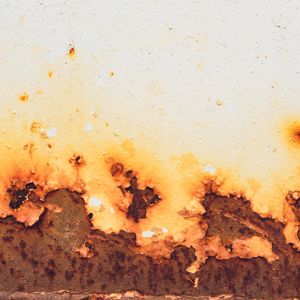Understanding Water Immersion Testing
A water immersion test is a standardized, laboratory-based assessment that analyzes the degree to which something (usually a metal) undergoes corrosion when immersed in water— whether partially, halfway or completely. From ASTM G31 to ASTM A262, which are tests that define the different conditions a lab must replicate for the results to be considered accurate, water immersion testing can be a highly informative practice for materials in aqueous environments for a prolonged period.
Why are water immersion tests performed?
The main purpose of this test method is to identify a product’s resilience — or susceptibility — to corrosion. Corrosion is a product of oxidation, a naturally occurring chemical reaction that occurs whenever metal is exposed to moisture — be it from the air, water or a combination of the two. When oxidation happens, it strips metals of their electrons, which are subatomic particles that serve as the building blocks of all solids. This loss of electrons causes metals to weaken structurally the longer that they’re exposed to elevated levels of moisture. Water immersion testing helps determine how quickly a substance is prone to corrosion by replicating the different conditions that cause it to occur but within a controlled environment. Armed with this information, users of the metal can then decide what coatings will enable their materials to stay stronger for longer.
“The manner in which water immersion testing is performed is influenced by the kind of corrosion that occurs with a particular substance.”
How is a water immersion test conducted?
Because there are so many types of corrosion (e.g., atmospheric, pitting, intergranular, uniform, selective, etc.), the manner in which water immersion testing is performed is largely influenced by the kind of corrosion that occurs with a particular substance. It’s also affected by the real-world environment that a metal will be in when it’s eventually put to use. In general, however, a water immersion test is performed by submerging a metal into water over a specific time period, followed by drying off, then submerging it again for the same amount of time as before. The minimum is approximately 24 hours but it can be much longer than that as well.
For corrosion to occur more quickly, the test conditions may be adjusted, whether that’s by making the solution more acidic, adjusting the water temperature, increasing the pressurization level within the water or the depth of where the substance or material is placed within the water. For example, if it’s farther down, that increases the pressure than if it were in a more shallow environment. Higher pressure results in a faster corrosion rate.
The different conditions replicated in the test are guided by the test type and the substances that are being analyzed. For example, if the test specimen is something industrial that will be constantly underwater — such as a pipeline — a warm water immersion test may be appropriate, as opposed to a cold water immersion test. ISO 21809-1 and ISO 21809-3 are two types of hot water immersion tests that are designed for partially buried or fully submerged pipelines.
In addition to determining what coating will work best for materials exposed to highly aqueous environments, a water immersion test can provide key guidance to manufacturers in the fabrication process so products are built to last. For example, MIL-STD 810 is a U.S. military standard that specifies what laboratory testing methods must be replicated based on the environment that the test subject will be in during real-world use. Established by the Institute of Environmental Sciences and Technology, there are a wide range of MIL-STD 810 test methods that can be altered accordingly —be it water temperature, moisture level, acidity, air pressure, vibration or shock.
From solar panel testing to UV exposure to thermal shock and saltwater immersion, Auto Technology has the testing equipment and expertise for all your commercial application immersion equipment needs. Contact us today to learn more.


